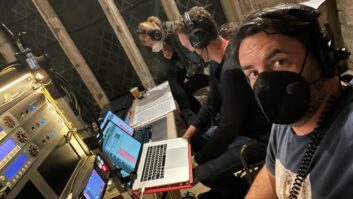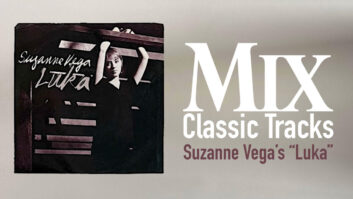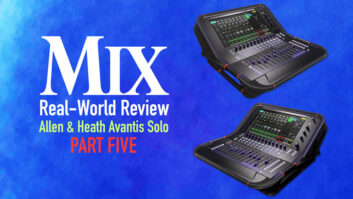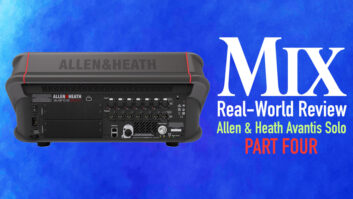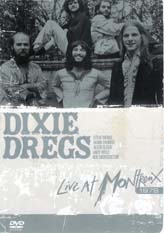
Dixie Dregs: Live At Montreux 1978 (Eagle Eye Media)
The Steve Morse Band: Live in Baden-Baden, Germany, March 1990 (Eagle Eye Media)
I still have fond and vivid memories of the first time I ever saw Steve Morse play: It was on a late ’70s “showcase” tour by his instrumental group, the Dixie Dregs, maybe supporting their first or second album, at the relatively intimate Old Waldorf nightclub in San Francisco. I was, quite frankly, blown away. Here was a group that played with the same kind of manic speed, fire and precision of the great fusion pioneers Mahavishnu Orchestra (after whom they were modeled somewhat, down to the electric violin of Allen Sloan), but had more country and rock underpinnings mixed in with jazz, funk and other flavors. All five players were clearly virtuosos, but since I’m a guitar guy, Morse was my immediate favorite. He might have borrowed some of his approach from Mahavishnu leader John McLaughlin, but he was also clearly an original stylist who drew from many sources and combined it all into a recognizable musical personality that, at that time, I found very appealing. So much so that I went to see the Dregs on three successive tours, and was always impressed by the depth of their talent, even through some significant personnel changes. Morse and drummer extraordinaire Rod Morgenstein were the constant, stable presences in the various lineups, both before the group’s first dissolution in 1983, and in later incarnations. Morse was also the principal songwriter.
The Dixie Dregs: Live At Montreux 1978 captures the early Dregs at their eclectic best, roaring through an 11-song program that shows what a magnificent high-wire act this was. (In fact the Montreux show was the source of several songs on the group’s popular 1979 album, Night of the Living Dregs.) Even nearly 30 years later, it’s hard not to be impressed with the obvious chemistry between the players and marvel at their incredible fluidity as they navigate insanely complicated unison sections and radical style and tempo shifts; they make it look almost easy. And you can tell from their faces that it was as fun for them as it was for their audiences. Whether they were stomping down some country road, with Morse leading the way with lightning licks that undoubtedly would have left Chet Atkins slack-jawed with wonderment, or unloading heavy rock riffs, or visiting more ethereal spaces (all represented here), the Dregs were always completely in sync, flitting between prog-rock, bluegrass and even bebop during their inspired flights. If they lacked the skull-splitting heaviness and the spiritual gravitas of the Mahavishnu Orchestra, they more than made up for it in rock ’n’ roll energy and sheer joie de vivre. In addition to the hour-long Montreux set, the disc also contains a couple of tunes from an American Bandstand appearance (one featuring singer Alex Ligertwood—vocals on Dregs? Bad idea!), and also one from Don Kirshner’s Rock Concert.
Frankly, I lost track of the Dregs after their first break-up in 1983. I guess my own tastes had changed a bit, influenced by shifts in the rock world toward the more concise and visceral punk and new wave movements. Prog and fusion started to wear me down—after a while I started to feel a little bit like the emperor in Amadeus (which came out in 1984) who complains that Mozart plays “too many notes.”

So imagine my delight when I put on the new The Steve Morse Band: Live in Baden-Baden, Germany, March 1990 and discovered there’s a song called “Tumeni Notes”—touché, Steve! Now, until I popped on this DVD I hadn’t heard one note of the Steve Morse Band. Why didn’t I ever check him out over the years? I have no idea. Just didn’t happen; you know how it goes. But this DVD reminded me of why I liked him so much in the first place—it’s not just that he’s nimble-fingered and plays with a sort of effortless grace that few can match. He is also a thoughtful player, who knows the value of space between notes, and who doesn’t need flash to get his ideas across. (Which isn’t to say he isn’t flashy—this guy can rip!) The 1990 lineup is a trio: just Morse, bassist Dave LaRue and drummer Van Romaine—both absolute beasts!—and that obviously gives Morse more room to shine. It also, I think, encourages him to vary his sonic palette more, as he doesn’t have as many other colors coming in from other players. It all feels looser and more relaxed than the Dregs—maybe more suited to these times? I don’t know. More suited to me in these times, perhaps. So far I’ve tended to gravitate toward some of the quieter material on the disc, where Morse favors a clean, silky, Pat Metheny-esque tone, all shimmering notes and interesting delays—as on “Country Colors” and the guitar-bass duet “Point Counterpoint.” But he still traverses plenty of stylistic ground, from the Scottish lilt of “Highland Wedding” to the funky “Sleaze Factor” and the barbecued flavors of “Pride of the Farm.”
Sonically, the bonus tracks from a 1984 show in Germany (with Jerry Peek on bass and Rod Morgenstein on drums) don’t hold a candle to the 1990 material, but among them is one of the prettiest tunes on the disc—the Dregs’ “Northern Lights,” which Morse performs on an electrified acoustic guitar; sublime!
So, it’s been great re-discovering Steve Morse. I’ll make more of an effort to keep up from now on. Just don’t ask me listen to Morse-era Kansas.

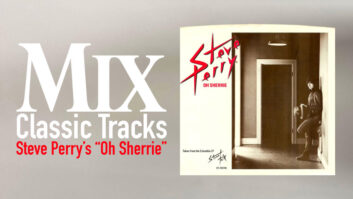
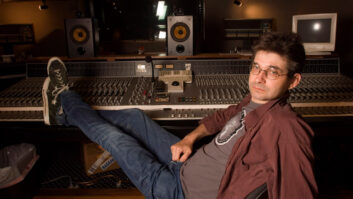
![A stroll through Abbey Road. Watch out for that bus! Photo: Phil Castellano. [Editor's Note: Steve is last in line.]](https://www.mixonline.com/wp-content/uploads/2025/06/2025-06-26-Blog_Fig1-MAIN-353x199.jpg)
